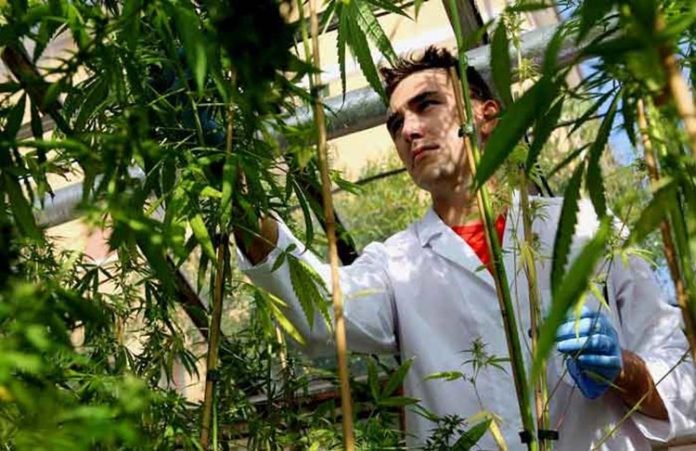For the first time, the US Food and Drug Administration has recommended approving a drug derived from cannabis. It’s an important step in acknowledging that the plant has a valid medical use, but will mean little without loosening the research restrictions that keep scientists from figuring out the other health effects of cannabis.
The drug in question is Epidiolex, used to treat severe forms of epilepsy called Dravet syndrome and Lennox-Gastaut syndrome. Epidiolex includes cannabidiol (CBD), a chemical that comes from the cannabis plant but is not psychoactive. Researchers have applauded the move, and it looks likely that the drug will be officially approved soon. “This is a very good development, and it basically underscores that there are medicinal properties to some of the cannabinoids,” Dr. Igor Grant, director of the Center for Medicinal Cannabis Research at the University of California San Diego told The New York Times.
Still, the recommendation for approval is for “a single compound that comes from the plant and is approved for two very specific forms of epilepsy,” says Daniel Friedman, an associate professor of neurology at NYU Langone’s Comprehensive Epilepsy Center who co-authored a study investigating Epidiolex to treat Dravet syndrome. “What that means for other conditions or other cannabinoids, we don’t know yet.”
It’s certainly possible that CBD could be helpful in treating other forms of epilepsy, or other conditions entirely. But to know, and to develop drugs that will help people, the Drug Enforcement Agency needs to relax restrictions on cannabis research. Right now, cannabis is illegal on a federal level and, is according to the DEA, a Schedule I drug along with heroin, LSD, and cocaine — meaning it is considered to have “no currently accepted medical use and a high potential for abuse.”
As a result, Friedman’s team had to go through a complicated bureaucratic process to conduct their study on Epidiolex. This included having a special license from the DEA and special equipment, and “all that infrastructure makes it prohibitive to do studies in other conditions by people who may want to do so, but don’t have the resources.” These same restrictions mean that as of 2013, fewer than 20 randomized controlled trials (the gold standard for scientific research) have tested the benefits of marijuana, according to the American Medical Association. To do more good, we should make it easier for researchers to study the plant and potentially bring useful new drugs to market.
On the other hand, a lack of FDA and DEA approval has hardly prevented an industry of beauty and wellness companies from using CBD in everything from mascara to bath bombs, despite the majority of these products lacking legitimacy. Epidiolex is derived from a genetically cloned strain of cannabis bred to produce CBD and then carefully refined, according to Friedman. It’s unlikely that the same can be said of products like Kush Mascara, Vertly lip balm, or even weed lube.
The CBD wellness industry is suffering from the same hype and lack of regulation as the supplements industry (a lack of regulation that leads to “dietary supplements” including dangerous simulants.) Last year, the FDA tested CBD wellness products, and many didn’t contain the amount they had claimed.
The positive recommendation from the FDA is a good step forward in legitimizing CBD and cannabis for medicine. “As a clinician, I’m indifferent to whether a drug is derived from a plant or manufactured in a lab — I’m happy to see there’s another option for these patients,” says Friedman. Hopefully, it’s another nudge for the DEA to reschedule the drug and stop crippling research. At the same time, the FDA needs to more closely regulate this side industry of CBD products, because even though the real version of CBD could help heal, the $24 cannabis-oil mascara will hardly be the cure to what ails us.














